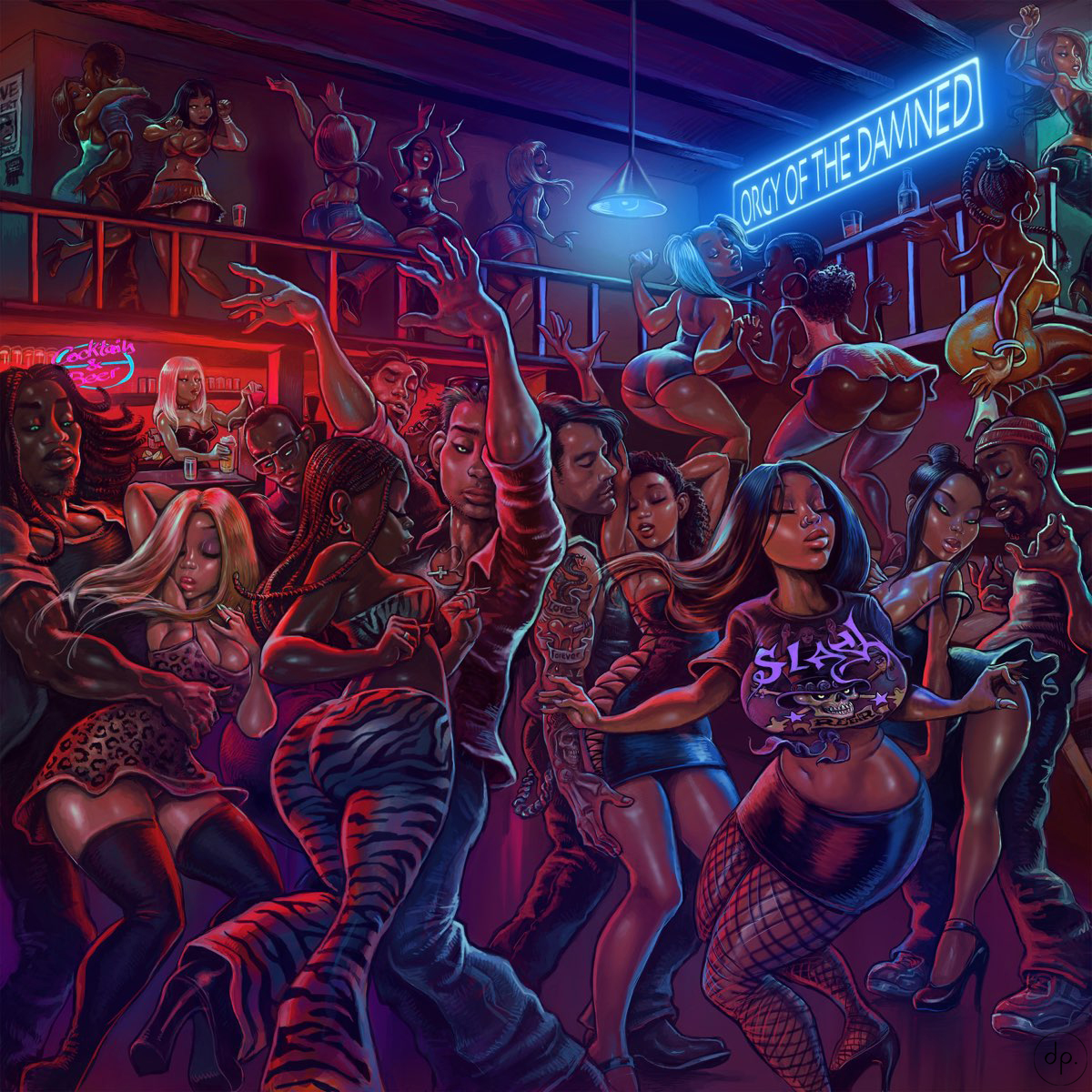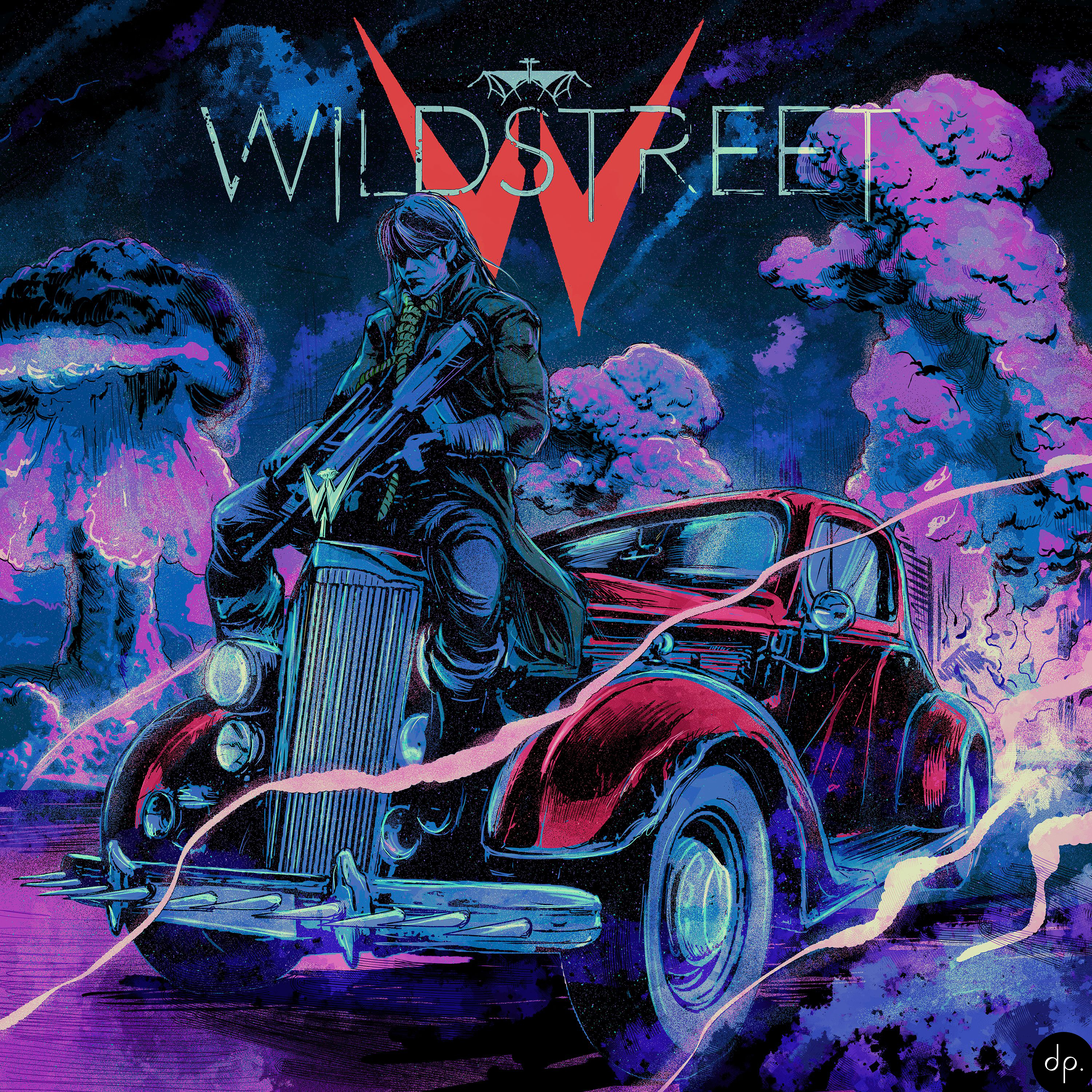
Critic's evaluation
A little less than a year after releasing Song Machine, Season One: Strange Timez, their seventh studio album, the Gorillaz returns to compete for significant placements in Billboard, Rolling Stone and Spotify charts with their first EP. Entitled Meanwhile, the work also marks the group's return to the stage after the isolation imposed by the Covid-19 pandemic.
The synthesizer, with its numbing, velvety sound, introduces the listener to the opening track. Without much clarification of the scenario the song could offer, the listener is abruptly taken to a rap-based, low-sounding rhythm, offering an even sinister atmosphere. This is cooperated with the deep voice of Jelani Blackman, who invades the scene and inserts a lyricism that, first of all, repudiates hate to, at last, praise Notting Hill carnival, dance, interaction, colors, and, why not, life. And accompanying this rapped lyricism, a linear beat performed by Remi Kabaka Jr. gives an accentuated and seductive cadence to the song. However, what takes on the role of upper flavor in the title track are the dramatic cello lines of Isabelle Dunn that marry with the soaring overdrive of the violins of Nina Foster, Oli Lagford, and Sarah Tuke. Creating a playful Tim Burton-style atmosphere, the high-pitched crescendo notes of the keyboard carry the listener into the song's bridge, at which point 2-D finally takes over the microphone. For those who were expecting reggae-like phrases sung by Barrington Levy, it could be said that their expectations were not met. After all, the singer lent his vocals only as an echo of words sung by Blackman or 2-D.
The instrumental is complete. 2-D, Noodles, Murdoc Niccals, and Russell Robbs bring the base guitars, bass, and acoustic drums to Jimmy Jimmy, respectively. Despite the surprisingly reggae-tinged and consequently jangly lead brought on by the base guitar riff and the full-bodied bass groove, the song is like a little brother to Green Day's single Jesus Of Suburbia. After all, the lyrical kinship between the two tracks is quite evident. Both songs tell the story of a suburban character in search of success who, while surrounded by friends, is conflicted by the world of drugs, depression, and pressure. However, the greatest similarity is, in fact, in the name of the track. For the Gorillaz, the character is called Jimmy Jimmy, and for Green Day, he is called Saint Jimmy. With rapped vocals, 2-D brings to the listener impacting questions such as "why is bein' loved so appealin'?" and, in the company of AJ Tracey, criticizes the poverty and inequality of Notting Hill. An epic story that, from the lyrical storyline alone, there is no doubt that it is Meanwhile's lead track.
Just like in Jimmy Jimmy, the rhythm that guides the melody in Dèjá-vu is reggae, but here the rhythm is more present due to the participation of Jesse Hackett and Mike Smith's keyboards that homogeneously accompany the melody. It is as if the listener could feel in Jamaica without ever having been there, after all, the groove of Seye Adelekan's bass and Femi Koleoso's swinging drums create a complete festive and joyful atmosphere with strong tropical airs. At the same time, African influences can be noticed in the sound of the song in the mesmerizing sounds of guest Alicai Harley. With melodic touches of ska entangled in reggae, Dèjá-vu is a song whose lyricism addresses questions about staying tense and tied to the bonds of social morality represented in an apparent fear of showing one's true identity. At the same time, the song brings among the characters a figure who claims to come from the future, which by saying "I like the future (I can do a lot of things nobody else can)" leaves interpretative gaps that indicate a period in time when freedom of expression is total. Here is a sign that the song even serves as a protest for the LGBTQi+ community by, precisely, defending freedom.
Meanwhile is, first of all, a surprising EP. The first reason for this is that on this work Gorillaz has completely left their electronic comfort zone and immersed themselves in the Jamaican field by tackling ska, reggae and its dub derivation. In addition, there are mentions of African music in the lyrical melody, which makes the extended play different from the group's other releases.
Another reason is the lyricism that fills the three songs. Jimmy Jimmy is an epic track despite its average length. Besides criticizing poverty and social inequality, the title track and Dèjá-vu defend, with their rhythmic peculiarities, freedom of expression and exhort carnival as an environment in which acceptance is a motto.
The third but not least reason that Meanwhile is surprising is the invitation for musicians from beyond the British royal border to participate in the project. And perhaps because of this, 2-D's voice seemed like an extra spice with his sharp English accent rather than being part of the melodic base.
Of course, the melody is complete when the production-mix ending is done in harmony. And that happened with the clear chemistry between the mixed production between Gorillaz and Kabala Jr. and the mixing of Matt Buttcher and Stephen Sedgwick bore good fruit. After all, the EP sounds light and at the same time dense.
Released on 08/26/2021 via Parlophone Records, Meanwhile is an EP out of the box. It is festive, yet critical at the same time. It is swingy and at the same time rap. It's a complete mix of rhythms, just as the exhortation for the joy of Notting Hill carnival asks.





